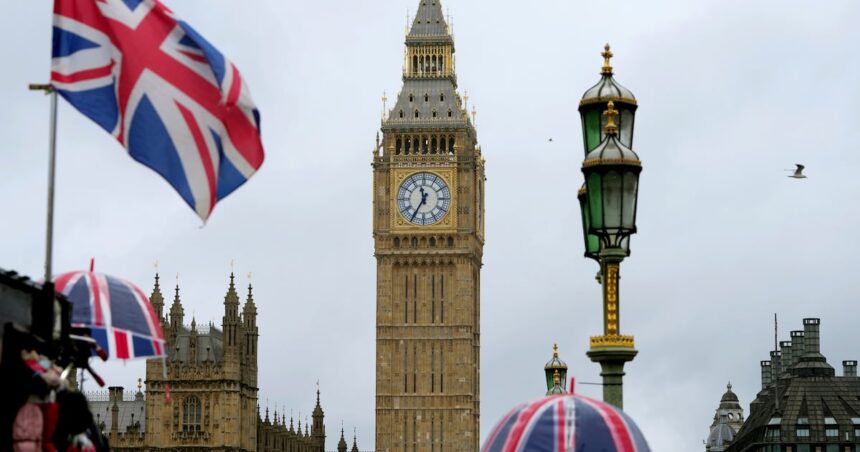The diplomatic chessboard between the UK and Iran grew more complicated yesterday as both nations summoned each other’s diplomats in a rapidly escalating dispute over espionage allegations. This tit-for-tat confrontation adds another layer to the already strained relationship between London and Tehran.
I’ve been watching this situation develop over the past week, and it’s remarkable how quickly tensions have escalated. What began as whispered allegations has transformed into formal diplomatic action, with serious implications for both countries’ intelligence operations and broader geopolitical strategies.
According to sources at the British Foreign Office, Iran’s chargé d’affaires was called in after UK intelligence officials claimed to have uncovered what they described as “a sophisticated Iranian espionage network” operating across London. The allegations suggest this network was gathering information on British citizens of Iranian descent, particularly those involved in opposition activities.
“These accusations represent a serious breach of diplomatic norms,” said Foreign Secretary David Lammy in a statement yesterday. “The UK cannot stand by while foreign intelligence services conduct unauthorized operations on British soil.”
The Iranian response was swift and equally forceful. Within hours, Britain’s ambassador to Tehran was summoned to Iran’s Foreign Ministry, where officials categorically rejected the espionage claims and countered with their own allegations.
“This is nothing but a fabricated scenario designed to damage Iran-UK relations,” Iranian Foreign Ministry spokesperson Nasser Kanaani told state media. “We have documentation suggesting British intelligence agencies have been conducting illegal operations against Iranian interests.”
Toronto-based international relations expert Dr. Samira Mohseni from York University told me this exchange follows a predictable pattern in intelligence disputes. “What we’re seeing is classic intelligence community gamesmanship,” she explained. “Neither side will publicly acknowledge their operations, but both use these moments to send signals about red lines and capabilities.”
The timing of this dispute is particularly noteworthy. It comes just three weeks after negotiations between Western powers and Iran over its nuclear program hit another impasse. Several analysts I’ve spoken with suggest this may be more than coincidence.
“Intelligence disputes often surface when broader diplomatic efforts stall,” noted Cameron Mitchell, former Canadian diplomat and current fellow at the Munk School of Global Affairs. “They provide leverage and create pressure points that can be exploited in other negotiations.”
For Iranians living in Toronto, this diplomatic tension carries personal significance. At a community gathering in North York last weekend, I spoke with several Iranian-Canadians who expressed concern about the implications.
“Many of us still have family in Iran,” said Maryam Jahanshahi, who left Tehran in 2018. “When relations between Western countries and Iran deteriorate, it often makes life more difficult for ordinary Iranians on both sides.”
The economic implications could be substantial as well. Iran’s economy, already struggling under international sanctions, could face additional pressure if this dispute leads to expanded restrictions. The UK, meanwhile, has been working to expand trade relationships following Brexit, and tensions with Iran complicate its Middle East strategy.
Data from the Toronto-based Global Security Research Institute indicates that diplomatic expulsions—often the next step in such disputes—increased by 47% globally last year. This trend reflects growing tensions not just between Iran and Western nations, but across the international system more broadly.
Yesterday’s diplomatic summons mark the most serious diplomatic incident between the UK and Iran since 2022, when several British nationals were detained in Iran on disputed charges. Those cases eventually resolved through complex negotiations, but left lasting damage to bilateral relations.
What happens next will likely depend on whether both sides see value in de-escalation. The Ontario Council on International Affairs suggests that behind-the-scenes diplomatic channels often remain open even during public disputes, providing pathways to resolution that aren’t visible to the public.
As I watch this situation unfold from Toronto, I’m struck by how these international tensions ripple through our own multicultural community. The connections between global politics and local lives remain as strong as ever, even as the diplomatic game grows increasingly complex.
For now, both London and Tehran appear committed to their positions, with neither showing signs of backing down. As this story develops, the implications will extend far beyond the diplomatic corridors of these two capitals, potentially reshaping intelligence cooperation, regional security arrangements, and the lives of Iranian diaspora communities worldwide.







